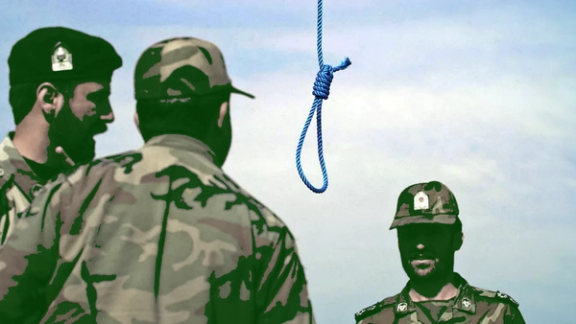Iran executes political prisoner accused of spying for Israel

Iran executed a man convicted of espionage for Israel, judiciary-affiliated news agency Mizan reported on Wednesday, prompting fresh condemnation from several human rights advocates.

Iran executed a man convicted of espionage for Israel, judiciary-affiliated news agency Mizan reported on Wednesday, prompting fresh condemnation from several human rights advocates.
Pedram Madani was sentenced to death by a Revolutionary Court on charges of “corruption on earth” over allegations he provided intelligence to Israel as well as "Moharebeh" (waging war against God).
Madani, a political prisoner in his 40s, was arrested in 2019 and had been held in Tehran’s Evin Prison before being transferred to Ghezelhesar Prison days before the execution.
Iran Human Rights (IHR), a Norway-based NGO, said Madani’s death sentence had been overturned by the Supreme Court on three occasions, but the case was reassigned to other branches that reinstated the verdict.
“These are death sentences without due process,” said IHR director Mahmood Amiry-Moghaddam. “They amount to extrajudicial killings.”
Nobel Peace Prize laureate Nargess Mohammadi had called the case “a blatant act of injustice,” saying Madani was denied access to an independent lawyer and coerced into confessing under pressure and prolonged solitary confinement.
Iran's judiciary has not responded to the allegations of procedural irregularities. Authorities have previously defended such cases as necessary for national security, especially amid rising tensions with Israel and reports of sabotage and assassinations inside Iran.
Activists and former detainees described a growing trend of accelerated capital punishment. Mehdi Mahmoudian, a civil activist detained in Evin, said Madani was misled with promises of clemency. “He is the third prisoner in a month to be removed from Ward 4 for execution,” he wrote on social media.
Last month, Iran executed Mohsen Langarneshin, a cyber expert also convicted of aiding Israel. His case, too, drew international criticism after a leaked recording raised questions about the legitimacy of his confession.
At least 113 executions have been recorded in the first 25 days of 2025, IHR reported.
Iran accounted for 64% of all known global executions in 2024, with at least 972 people executed, according to Amnesty International.
Iran has consistently rejected criticism of its judicial system, saying that its courts operate independently and in accordance with Islamic law. However, rights groups and the United Nations have repeatedly called on Tehran to halt executions and ensure fair trials.
Iran Human Rights' 2024 annual report on the death penalty in Iran said that forced confessions, especially those aired live on television, have become "a propaganda tool aimed at creating fear and justifying the heavy sentences handed down to its political opponents and activists".